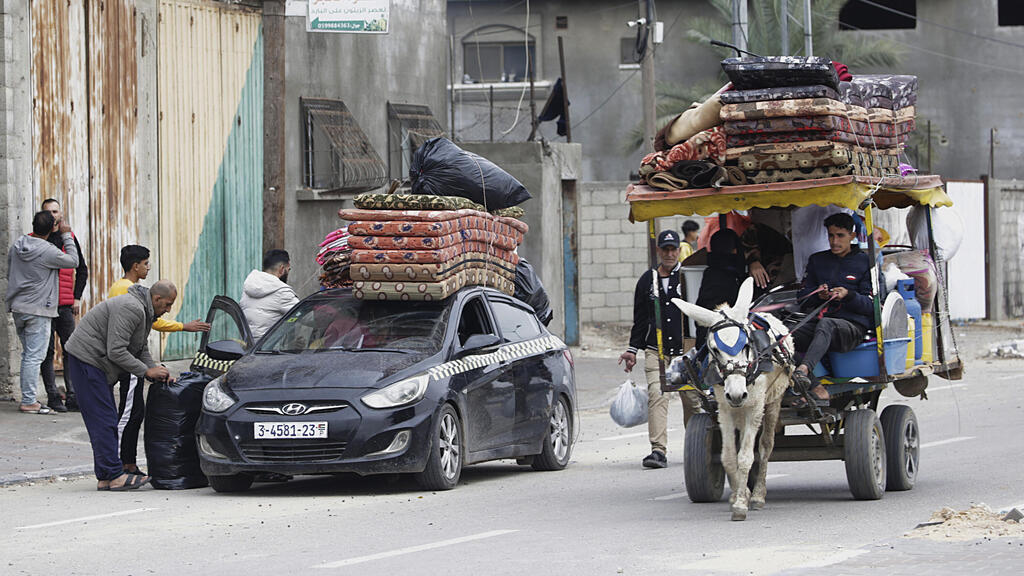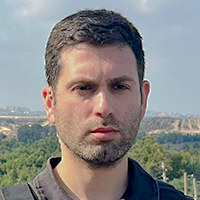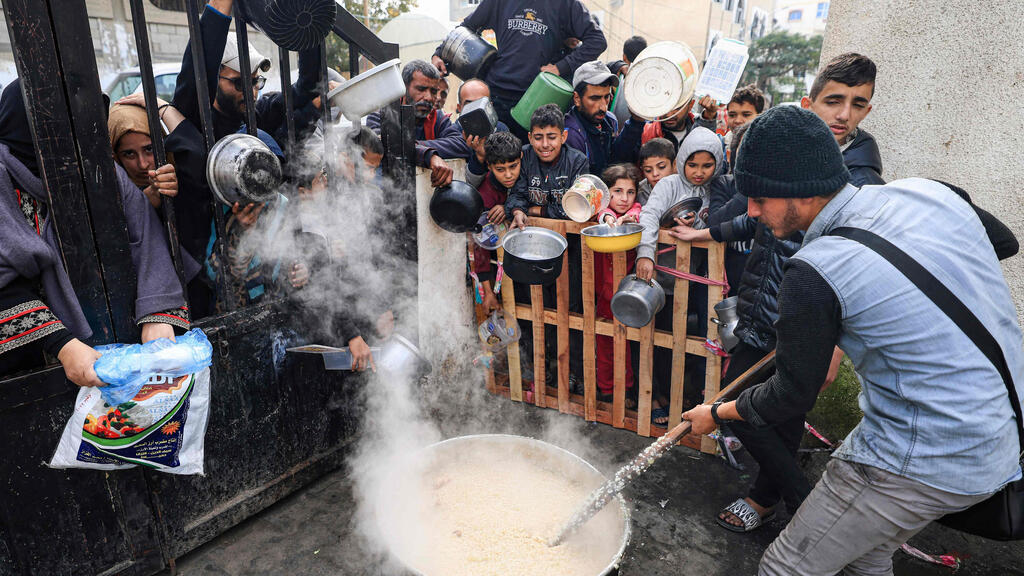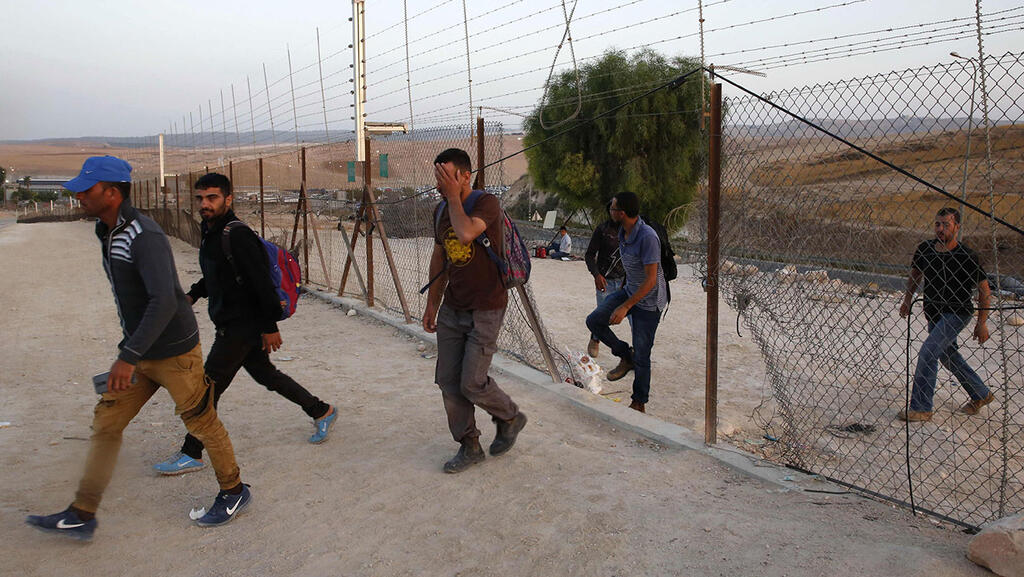Getting your Trinity Audio player ready...
At the beginning of the war, the IDF rented a small office space in one of Tel Aviv's renowned business buildings to serve as an impromptu command center for managing civilian issues that may arise during the IDF’s ground operations in Gaza. On Sunday, the team, led by an officer at the rank of colonel, already consists of dozens of military personnel and is expected to grow even larger.
More stories:
What started as a small core team of officers has, in recent weeks, evolved into a department with dozens of commanders in active and reserve duty, spanning half an office floor and growing.
3 View gallery


Gazans evacuating from the Strip's central areas following IDF warnings
(Photo: EPA/MOHAMMED SABER)
They handle a wide range of tasks, from rescuing dozens of Christians who were trapped in churches in the northern Gaza Strip to evacuating Palestinian Israeli nationals to safety, halting fighting in specific areas where main water pipes were damaged due to attacks and monitoring the situation regarding pandemics in the Strip, in case they break out, as well as the functioning of hospitals in the area. This is how a country controlling enemy territory must operate.
The team also works in a professional manner on scenarios regarding the day after the war with Hamas. Who will receive the keys to Gaza in February when the majority of IDF forces withdraw, and what bodies they’ll pass it on to in the next six months to a year? This isn’t clear, and Israeli officials have yet to provide straight answers to these questions.
What is clear is subtle action to let over 200 aid trucks into Gaza every day via the Egyptian side of the Rafah crossings and the Israeli Kerem Shalom crossing. These aid efforts mainly consist of food, water and medicine, but also include a small amount of fuel for civilian needs, such as medical institutions.
"Everything is measured, assistance is gradual, and if we notice any sub-optimal functioning in a Gazan hospital, we'll know that Hamas took the fuel meant for it," security officials assured Ynet. According to senior IDF officials, money for the reconstruction of the Gaza Strip after the war won’t be an issue – whether provided by Qatar, Saudi Arabia or the United Arab Emirates.
According to these officials, "the issue will be the mechanism itself – how we can ensure that the millions of Gazans won't go to Hamas for help, that wants to regain its strength. We don't have a solution for that in terms of establishing a new body to control Gaza. It's worth remembering that Gaza requires not only basic civil services like education, welfare and healthcare but also law enforcement to prevent anarchy that could affect Israel. It depends greatly on whether Hamas will be eliminated or remain in a weakened state."
Meanwhile, in the West Bank, which is partly governed by Israel, the risk of rising tensions breaking the ongoing calm is growing. War Cabinet ministers Bezalel Smotrich and Itamar Ben-Gvir oppose the return of 120,000 Palestinian workers to their workplaces in Israel, despite Security Minister Yoav Gallant’s recommendation on the issue, echoed by the IDF and the Shin Bet.
According to the military’s data, these workers support about a million Palestinians in the West Bank and generate cash flows amounting to six billion shekels per month in the Israeli economy, mainly in the construction sector.
Last week, only 12,000 Palestinians were granted permission to return to work in Israel, most of them employed by factories and construction sites in the West Bank, and a few thousand for critical needs in Israel.
A security official warned, "Even after we were done dealing with infiltrations from the West Bank after a year and a half of tensions in the West Bank, it now seems that soon masses of illegal Palestinian workers will breach and infiltrate Israel to bring earn money to their families."
He added, "This is definitely a realistic scenario because the alternative for them will be to stay home without a salary, as it has been for them since the beginning of September. Desperation quickly translates into terror and rioting."
Security officials presented the War Cabinet, via Israel’s National Security Council, a graded plan for a more gradual return of Palestinian workers from the West Bank into Israel. The plan was postponed for now, and it’s unknown when the issue will be brought up for further discussion.





